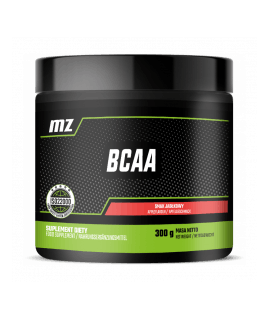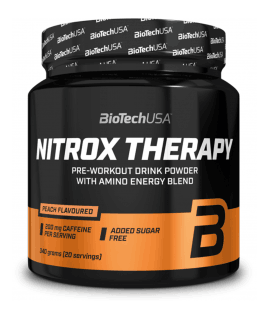BCAA are three essential amino acids having a side branched aliphatic chain (isoleucine, leucine, and valine) and a similar course of metabolic processes, occurring in the muscle tissue. In its natural form, they are found in high-protein animal foods (i.e. beef, milk proteins). BCAA have the anti-catabolic and anabolic potential. They support energy carriers during the energy crisis and affect the functioning of the nervous system (eliminate stress, reduce fatigue), hormone activity and kinases, which are responsible for the metabolism of proteins. In the sports supplementation they are used as supporting elements of exercise capacity (strength and endurance) and post-workout recovery; also as anti-catabolic and catalyst of anabolic changes. Taking BCAA after exercise almost immediately restores the levels of these amino acids in the blood (excluding liver) and supplies the muscle tissue. Leucine activates of mTOR kinases (starting anabolism of muscle proteins) and has the intensified effect with insulin, which acts on the PI3-kinase and protein kinase B. Branched amino acids chain BCAA, willingly used by strength, strength-endurance and endurance athletes, they are available in the form of single-component supplements, and advanced amino acid supplements, creatine, pre- and post- training stacks, and isotonic drinks.
Dosage: usually 1-2 grams of BCAA per 10 kg of body weight per day. Mainly before and after training.


